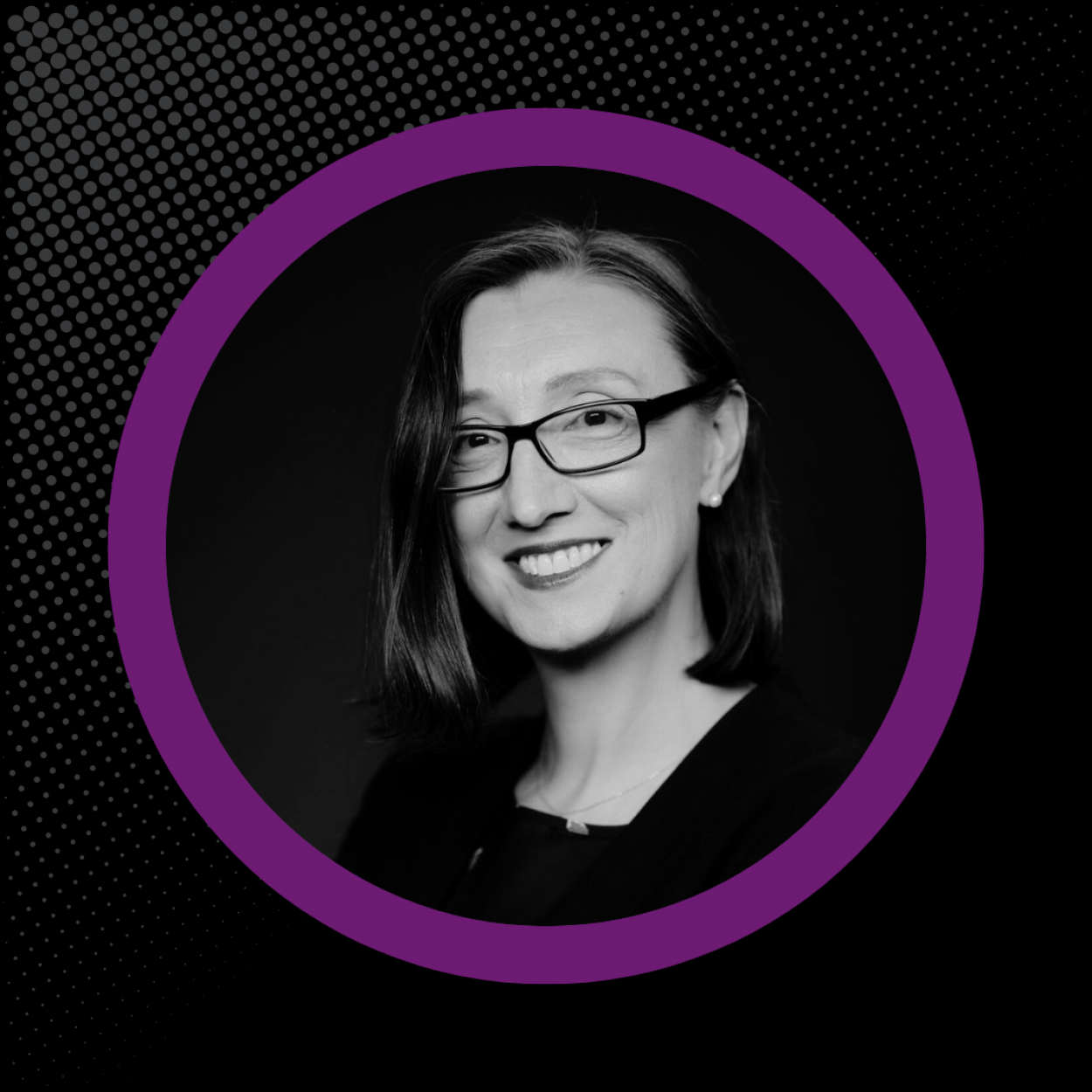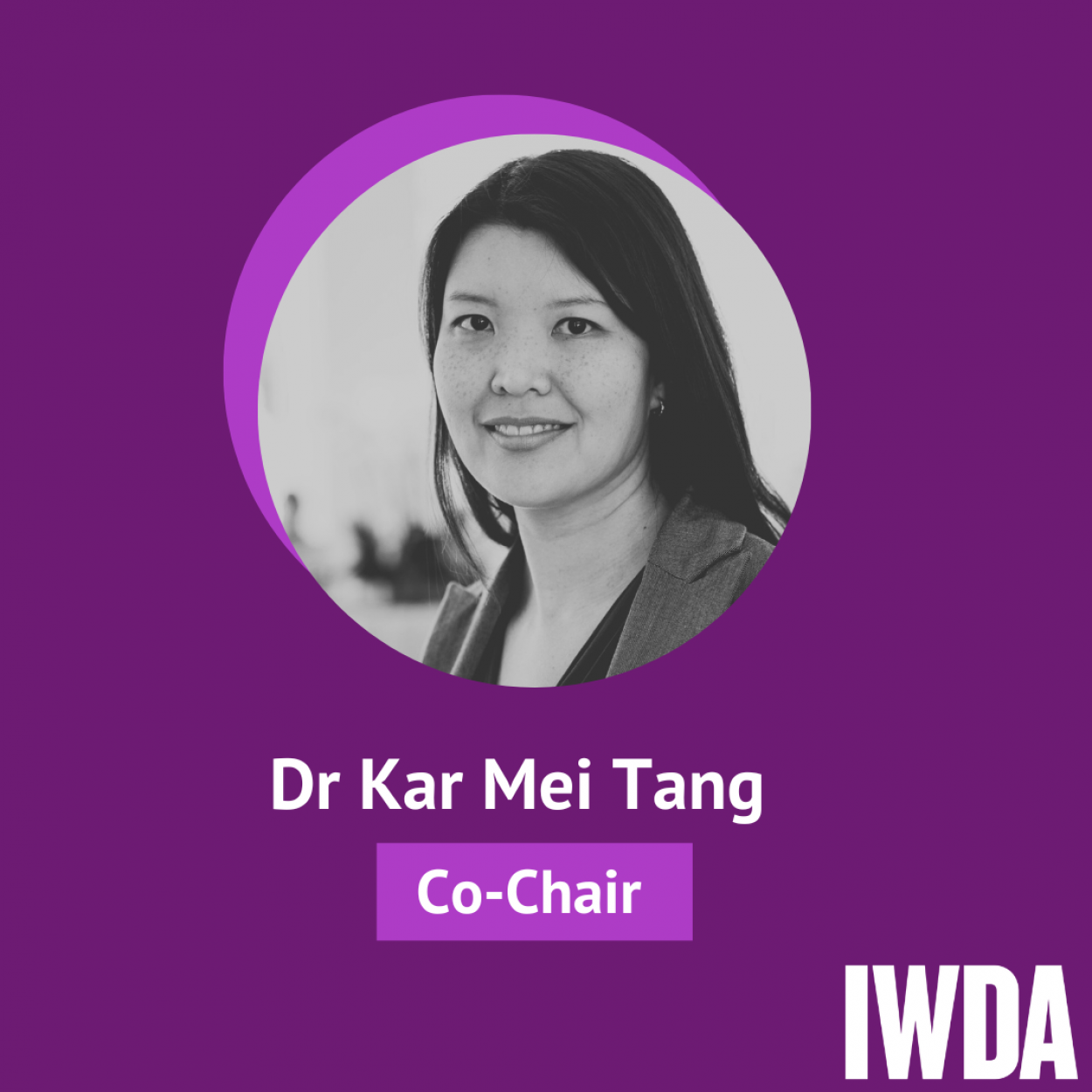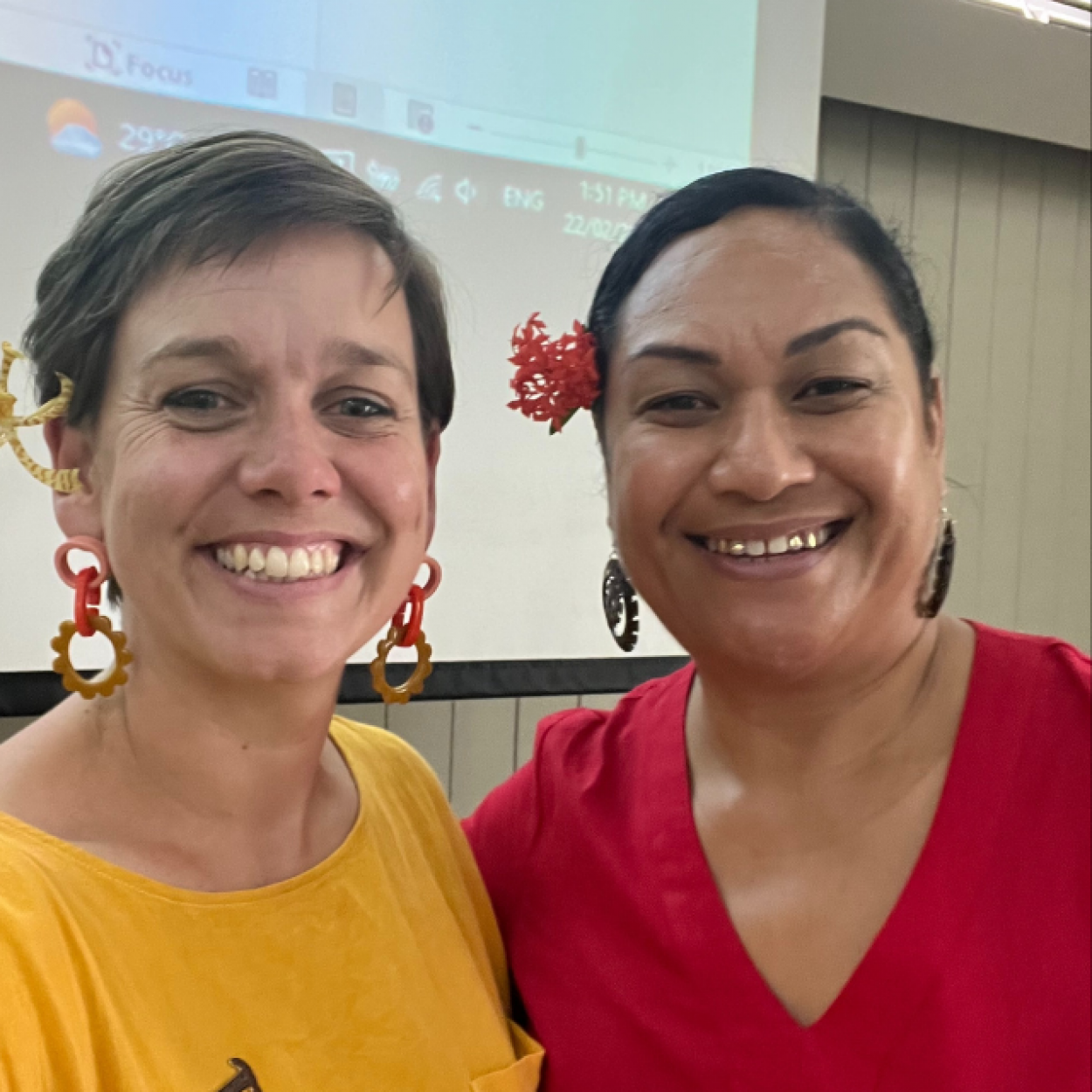
5 Lessons I’ve Learned from Majority World Women
IWDA’s former Feminist Movement Strengthening Adviser, Bronwyn Tilbury, shares the lessons she’s learned after more than eight years at IWDA.
On his final time hosting The Daily Show, Trevor Noah paid tribute to the Black women in his life for teaching, shaping, nourishing and forming him. “I always tell people if you truly want to learn about America, talk to Black women” he said, “Unlike everybody else, Black women can’t afford to f*** around and find out”.
As I finished up working as the Feminist Movement Strengthening Advisor at the International Women’s Development Agency (IWDA), and reflected on the last decade or so working in international development and the feminist movement – Trevor’s words rang very true. The following is a tribute to just a few of the many, many Majority World (Global South) women who have taught me pretty much everything I know:
1. If your development practice isn’t decolonising, it’s colonising.
Although I’d been deeply aware of the problematic power dynamics inherent in international development for years, I first engaged with the concept of decolonisation in 2016 when I attended the Association for Women’s Rights in Development (AWID) Forum in Brazil. I remember walking along the beach one morning with Pacific feminist and development geographer Dr Yvonne Underhill-Sem who said “if your research isn’t decolonising, it’s colonising”. This incisive, unforgiving sentiment has stayed with me ever since, and it applies just as much to international development as it does to research. It was also at the 2016 AWID conference that I was introduced to the paper “Moves to Decolonize Solidarity through Feminist Popular Education” by South African practitioners Shirley Walters and Shauna Butterwick. This paper informed the development of IWDA’s ‘4S’ Framework: Stepping Up, Standing With, Stepping Back, and Sitting With which IWDA has embedded across the organisation. The 4S Framework has helped us to ensure that we are constantly analysing our power and adjusting our ways of working, as a Minority World (Global North) actor working with Majority World (Global South) organisations and movements.
2. The transformative power of feminist movements
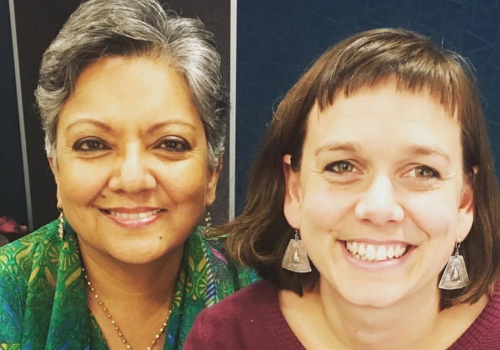
Srilatha Batliwala is the godmother of theorising on building women’s movements (and so much more!) and through her writing, podcasts and friendship, I have learnt more about feminism than from anyone else. Ever. Srilatha Batliwala is an Indian feminist whose work has spanned grassroots activism, building women’s movements, policy advocacy, teaching, research and scholarly work, grant-making, and capacity building of young women activists around the world. Srilatha is extremely generous in sharing her deep analysis and the feminist movement is all the richer for this generosity.
Her work on movements contends that constituency-based feminist movements, using consciousness-raising, political awareness and other strategies that challenge the power and practice of patriarchy, are the most effective tool to transform society to be more equitable and just for women and other marginalised groups. Her work has deeply informed my work as IWDA’s Feminist Movement Strengthening Advisor including IWDA’s Feminist Movement Strengthening Framework and IWDA’s work more generally, including the centering of movement strengthening within IWDA’s current Strategic Plan.
3. Feminist movements require feminist funding
My friend and mentor Virisila Buadromo taught me this lesson. Virisila is a leader in the feminist movement in Fiji and is currently the co-director of the Urgent Action Fund Asia and Pacific. Viri introduced me to the idea of taking an abundance mindset, rather than a scarcity mindset, when thinking about funding for feminist movements. There are so many billions of dollars in the world and feminist movements deserve their fair share of this abundance. Not only do they deserve a share, they deserve quality funding that enables them to do the transformative work they are best at. The recently established Alliance for Feminist Movements defines high quality funding as funding that: provides core support, is flexible, is provided for multiple years, and directly reaches the frontline organisations that are led by the women, girls, and trans and non-binary people who are most directly affected by systemic oppressions.
So much of feminist activists’ time and energy is spent writing kafkaesque funding applications, dealing with unreasonably complicated financial requirements and writing tedious and unnecessary reports for their funders. But the power dynamics in international development are such that this feedback rarely gets back to the funders, and even if it does, it is rarely taken onboard. These ideas have influenced IWDA’s recently expanded advocacy work aimed at growing the quantity and quality of resources for feminist movements, particularly those in the Pacific and Southeast Asia.
4. Nurture the Vā – The space that relates
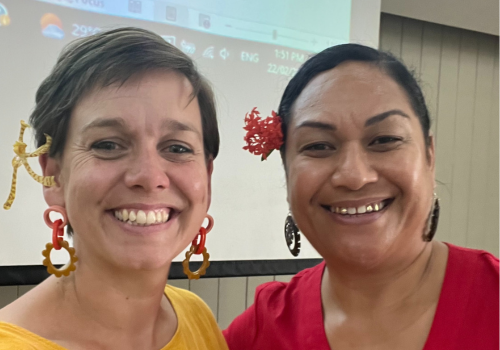
I learnt this lesson from Tongan feminist activist, researcher, filmmaker and powerhouse, ‘Ofa-ki-levuka Guttenbeil-Likiliki. In the research she conducted recently entitled Creating Equitable South-North Partnerships: Nurturing the Vā and Voyaging the Audacious Ocean Together, ‘Ofa quotes Emeritus Professor Albert Wendt, who describes the Vā as the “space between, the betweeness, not empty space, not space that separates, but space that relates, that holds separate entities and things together in the Unity-that-is-All, the space that is context, giving meaning to things”. This sentiment is similar to Gloria Steinem’s advice to ‘move at the speed of trust’.
You cannot over-emphasise the power of personal relationships in feminist spaces (all spaces?), of getting to know your collaborators on a personal level, being vulnerable with each other, taking the time to understand each other as multi-faceted, flawed and three-dimensional people – of nurturing the space that relates. This kind of relationship-building takes time, skill and effort, and is rarely valued like it should be. There are not many development project reporting templates with questions about how many hours you spent chatting about your kids, sharing the state of your mental health or finding out about your collaborator’s joys and passions in life! But there should be.
5. Collective care is a political strategy
“Standing up to systems of oppression, such as patriarchy, can be exhausting. In fact oppressive, patriarchal cultures and systems benefit from the stress and exhaustion of women’s rights activists and our movements. In contexts where women’s lives and bodies are ignored, devalued and abused, the act of celebrating our own wellbeing and that of other women human rights defenders can be a powerful political and organisational strategy.” This is a quote from IWDA’s Feminist Organisational Capacity Strengthening (FOCS) Toolkit on Creating Cultures of Care and Resilience, but it’s a lesson I’ve learnt time and time again from Majority World women. I remember Pisey Ly, Coordinator of the Rainbow Organisation Kampuchea (RoCK), one of IWDA’s grantee partners, said to me at an IWDA workshop once “there is an expectation to be constantly strong and confident as a role model. We are human beings, we can drink and smoke, we cannot all be strong all the time”. And I’ll never forget the words of Thai feminist Sattara Hattirat from Backyard Politics, when she said at IWDA’s Troublemakers Webinar on Collective Care “We feel guilty when we are not productive … When we rest it’s a triumph, it’s breaking the norm. It’s not laziness. Laziness is a narrative thrown at us by people who are not in our position. We are not lazy. We are tired”. If we don’t invest in individual and collective care, we risk harming ourselves, but also others, and that’s not a risk we should be willing to take.
These Majority World (Global South) women’s perspectives, knowledge, experience, skills and insights are immeasurably valuable and I feel privileged and humbled that they’ve shared their wisdom with me over the years. I hope I have used this privilege well by embedding this knowledge into IWDA’s ongoing practice, and as I move on to work in the Australian domestic sector for a while, I will take this wealth of knowledge with me too.
IWDA is currently recruiting for the role of Feminist Movement Strengthening Adviser.
Find out more and apply before August 13, 2023.
